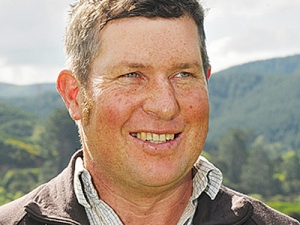It's been a good summer in Wairarapa with rain at the right times to keep grass and crops going.
January's rain turned up in February but the March trend of autumn coming early hasn't eventuated. Hot dry and dusty, all good if you own a water tanker business.
Production has been good, some products having their best year, especially beef and wool. This and a snapping shut of wallets should keep most Wairarapa farmers in a reasonable position.
Farmers need to put all this into perspective after being warned this season would be like summer 1998 – the mother of all droughts.
These forecasts came from weather experts and highlight the challenge of predicting seasonal trends.
You would've had to live under a rock, or spent the last five days in Whangamomona, to have not seen, heard or read all expert opinion on the dairy industry.
It's a media trend nowadays to roll out a spokesman or consultant, usually academic, to make sensational predictions of dire consequences, but it is frustrating for farmers and creates more pressure.
We've been blessed with these unique visionaries recalling how they warned us all, sharing their profound industry wisdom while imparting dramatic summaries on farm viability. Many of these self-appointed philosophers can't tell the difference between a cow and a bull, let alone know the inside of a dairy business.
One 'expert' was promoted as having worked for New Zealand's major dairy businesses, and then had to correct the statement about not having worked for Fonterra, which is 85% of the industry.
Such people should talk only about what they know and if pursued by the media for comment, should give only constructive, unbiased commentary.
A case in point: the Wairarapa Water Use project and speculation on dairy farmers' financial viability, which would lead to banks foreclosing on many clients.
The argument was that because irrigation is used for dairying, then irrigation must be stopped because dairy farming is no good.
This misses the point and shows a fair degree of ignorance as irrigation is used for many land uses and where one is unprofitable another will take its place.
Often overlooked too is our dairy farmers' ability to be innovative and adaptable, hence the shift to rearing beef animals as well as milking.
So a message to the 'experts': please refrain, this does not help farmers' or their families' mental state. Come to a farm instead and do a few days work milking cows. Talk to real farmers who use water and see the difference they can make rather than taking potshots from Wellington.
We know how tough it is: we are living it – paying bills, complying with laws, paying staff, spending time with family, looking after our animals and trying to keep it all together.
Farmers need support more than ever; it gives us a glimmer of light at the end of a long, dark tunnel.
Acknowledgement of the effort that goes into our industry would be appreciated rather than scrutiny without regard for one's feelings or livelihood.
• Jamie Falloon is Federated Farmers' Wairarapa provincial president.











